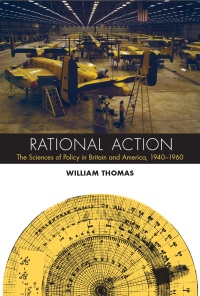Saul Gass (1926-2013), Practitioner-Historian of Operations Research March 23, 2013
Posted by Will Thomas in Operations Research.Tags: Arjang Assad, George Dantzig, Saul Gass
1 comment so far
 I was just passing by the website of the Institute for Operations Research and the Management Sciences (INFORMS), and was sorry to see that Saul Gass has died. Gass was a well-known name in the OR and computation community. He was part of the U. S. Air Force’s Project SCOOP, which, led by George Dantzig (1914-2005), developed the widely used mathematical technique of linear programming (which is also elemental in modern economic theory), and the powerful simplex algorithm. Later, while working for IBM, he was the manager of the Simulation Group of the Mercury Man-in-Space Program. For more on Gass, see INFORMS’s online memorial, or, better still, essays in the Festschrift for Gass’s 80th birthday (much of which is available via Google Books).
I was just passing by the website of the Institute for Operations Research and the Management Sciences (INFORMS), and was sorry to see that Saul Gass has died. Gass was a well-known name in the OR and computation community. He was part of the U. S. Air Force’s Project SCOOP, which, led by George Dantzig (1914-2005), developed the widely used mathematical technique of linear programming (which is also elemental in modern economic theory), and the powerful simplex algorithm. Later, while working for IBM, he was the manager of the Simulation Group of the Mercury Man-in-Space Program. For more on Gass, see INFORMS’s online memorial, or, better still, essays in the Festschrift for Gass’s 80th birthday (much of which is available via Google Books).
I wanted to mention Gass here, because he is also the type of person who is invaluable to professional historians of science: the practitioner-historian. We historians sometimes set up an “official” or “insider” story as a kind of foil for our work, but if we’re being honest we’ll have to admit we depend greatly on the work of insiders. Among other essays, Gass wrote a handy piece called “The First Linear Programming Shoppe” on Project SCOOP in the truly useful 50th anniversary issue of Operations Research. He also teamed with Arjang Assad to compile An Annotated Timeline of Operations Research: An Informal History (2005), which is pretty much what it says on the tin (as the British like to say). Personally, I love it for its copious references. The two teamed up again to edit the very useful biography collection Profiles in Operations Research (2011).
When I was first starting in on the history of OR, Gass was also very supportive of my work. I was part of two history sessions at INFORMS Annual Meetings (a very different, much larger beast than HSS), which he was involved with. That experience actually led to my first publication. Gass also kindly lent me his personal copies of Project SCOOP reports. The above image is his copy of the touchstone report, “Scientific Planning of Military Programs” (1948). Thanks for being a friend to history, Saul.
Joel Isaac at Imperial College CHoSTM Seminar Tomorrow [Canceled] March 13, 2013
Posted by Will Thomas in Uncategorized.Tags: Donald Davidson, Joel Isaac
add a comment
Update: I’ve just learned that Joel has had to cancel. Alas.
—
I’ve been extraordinarily busy lately, so I haven’t been able to spare time for a post. Maybe in a week or so I’ll be back up and running. But, for any Londoners out there, I wanted to plug Imperial College London’s CHoSTM seminar for tomorrow, 14 March 2013, since it’s being given by Joel Isaac of the Cambridge History Faculty. If you’ve been reading my recent posts on 20th-century social science, you’ll know I’m a big fan. As usual, it will be in the Seminar and Learning Centre (SALC) on the 5th floor of the Sherfield Building of the South Kensington campus, at 4:00 PM.
Philosophy as a Behavioural Science: Donald Davidson and the Analytic Revolution in Postwar American Philosophy
Abstract below the fold

History-Philosophy Relations, Pt. 3: Empirical History, Transcendental Standards, and the Unity of Science March 28, 2013
Posted by Will Thomas in Commentary Track.Tags: Allan Franklin, Carl Anderson, Charles Weiner, Daniela Monaldi, Hans Reichenbach, Hilary Putnam, Imre Lakatos, Kent Staley, Paul Oppenheim, Peter Galison, R. A. Fisher
1 comment so far
(more…)